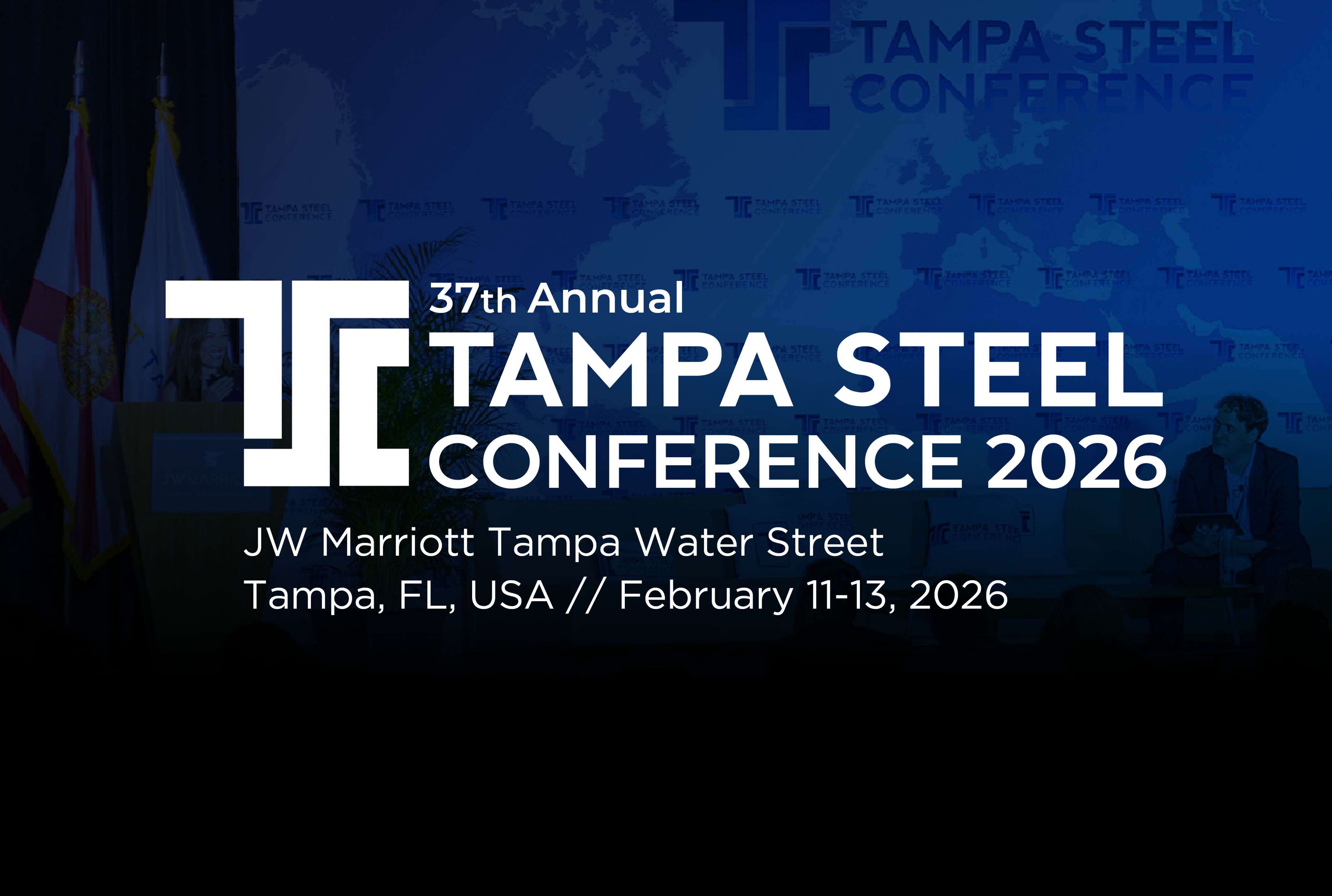Community Events

May 18, 2022
GMK Center CEO: Ukraine’s Iron and Steel Industry Fights On
Written by Laura Miller
Three months of war in Ukraine have wreaked havoc on the country’s iron and steel industry and caused repercussions across the global economy, but industry and the country of Ukraine continue to fight back.
In this week’s SMU Community Chat, Stanislav Zinchenko, CEO of the GMK Center, spoke with us on the impact Russia’s invasion has had on the steel sector of Ukraine and across the globe. GMK Center is a Kyiv-based think tank focused on the iron and steel industry. And it continued working even during the early, chaotic days of the invasion.

As some of the top exporters of iron ore, pig iron, semi-finished steel, and finished steel products, both Ukraine and Russia are deeply involved in global supply chains, so war between these two important exporters has been a huge shock for the whole world, Zinchenko explained.
Ukraine’s iron and steel production is concentrated in four cities, with 40% of commercial pig iron and 40% of steel production concentrated in the city of Maruipol alone. The urban infrastructure of Maruipol has been completely destroyed by Russian invaders, and two large steel mills there have been damaged. The Azovstal works – whose products include slabs and flat products – has been completely destroyed. The Illyich Iron and Steel Works in Maruipol – whose products include pig iron and flats – has also been damaged, but no one knows yet to what extent.
Integrated iron and steel operations in the other cities of Zaporizhzhia, Kryvyi Rih, and Dnipro resumed operations in April, albeit at significantly lower utilization rates than before, Zinchenko said. The plants are focused on making finished steel products, rather than pig iron, as they look to maximize their margins per ton.
Logistical issues and a shortage of coking coal are further hindering utilization rates. With Black Sea ports under Russian control, Ukrainian mills are unable to export product via normal trade routes. They are exploring other options, including rail, but they face high costs and insufficient infrastructure capacity in Ukraine and the rest of Europe to handle 60 million to 80 million tons of increased exports and imports.
Before the war, Ukraine was a major importer of coking coal, with Russia supplying 43% of its coking coal needs in 2021 and the US alone providing 11%. The coal shortage will continue to prevent Ukrainian mills from increasing production.
Before the war, Ukraine was a major global supplier of pig iron, but exports of this product have stopped as a result of the war. The US and EU are suffering the most from this, as Ukraine provided 30% of the US’s pig iron needs and 25% of the EU’s needs in 2021. There is some chance of Ukrainian pig iron returning to the global markets, Zinchenko said, but lack of available sea transport remains the biggest hurdle.
Russia’s invasion of Ukraine and the sanctions imposed on Russia by many countries as a result have essentially created two different global markets – markets with Russian steel and markets without Russian steel. In 2021, Turkey received 15% of Ukraine’s finished steel exports. Now, the Turkish market is being supplied by Russia, which is offering discounts of up to 25% for nations willing to buy its steel products. The European market was mostly dependent on Russian product pre-war, so it is suffering more than other regions. Zinchenko said to expect an increase of lower-priced Russian product entering other markets – such as Turkey, China, and MENA – which will force steelmakers in those markets to increase their own exports.
Zinchenko said recent actions by the US, EU, UK, and Canada will not likely lead to a significant increase in exports. The US’ temporary suspension of Section 232 tariffs on Ukrainian steel does little for Ukraine as its steel exports are still subject to nine antidumping measures covering the entire range of products it makes. So don’t expect a big increase in exports to the US market, Zinchenko said.
When it comes to rebuilding his war-torn country, Zinchenko said rebuilding steel plants won’t be the biggest challenge, infrastructure rebuilding will be. Ukraine does have some recent experience rebuilding, like when the Soviets left in the early 1990s, he said.
Zinchenko has remained in Ukraine since the start of the war, seeing missiles flying and hearing bombs dropping firsthand. He has continued his work with GMK since the war started, noting that focusing on work allows he and others to keep their mind off the heavy toll of the war that rages outside.
“I don’t want to believe that Mariupol is gone forever,” Zinchenko said. “Nobody knows what will be, this crazy world. Now I hope and pray only for peace.”
By Laura Miller, Laura@SteelMarketUpdate.com






